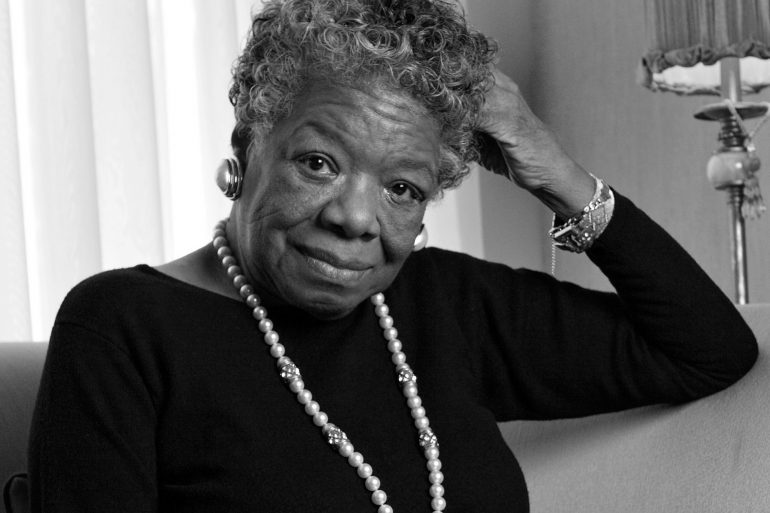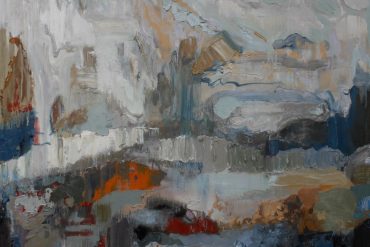I love cooking. A few years ago, I was in Barnes & Noble and came across a few cookbooks that were written by Maya Angelou. It sounds silly to admit this now, but I remember standing in the aisle, thumbing through these books and daydreaming about what it would be like to cook with Mama Angelou. I didn’t know her personally, but I always hoped and believed that if the opportunity had arisen, she would have wanted to make me a meal. I would insist on peeling the potatoes, dicing the onions, or trying to help in any way that I could and she’d gently, but firmly, tell me to just sit down and enjoy the moment. I like to think that she preferred red wine to white and that we would have drank it together while I sat at her feet listening to her tell me stories and read me poetry. I imagine that at some point during the storytelling, the laughing, and the crying, she would grab my face with those sacred and withered hands of hers, and simply hold it. Not letting go, she’d look me directly in the eye and smile at me; not saying a word yet telling me everything that I needed to know in that moment. Then—because we are two women who both love ending on sweet—she’d meander her way back to her kitchen and bring back two bowls of her bread pudding. I dreamt that Mama Angelou would feel like home.
A couple of weeks ago, my Princeton family had a beautiful celebration for me in honor of my graduation from seminary. They had framed pictures of some of my favorite artists, mentors, and writers, women like bell hooks, Zora Neale Hurston, Alice Walker, and Darla Johnson (my mama). Among these mothers of mine were, of course, Maya Angelou. The picture that they framed of her was a younger picture of her dressed in black and holding a white orchid flower in her right hand. Her eyes are half closed and it looks like the picture was taken mid-laugh. I found out that Mama Angelou had passed when I logged onto my Gmail account last Wednesday morning. I had just arrived to the office that I’m working at this summer, when I opened the Washington Post email and read the bolded headline—“News Alert: Maya Angelou dies at 86.” I sat with this news for about a minute before I headed to the restroom to have a moment to cry. I felt hollow inside, like a piece of me was gone. I immediately thought of Easter Sunday 1996, a day I remember very little about except for the fact that that was the day that my mother gave me I Know Why the Caged Bird Sings. I remember reading the first few pages of that book and hating it. The opening chapter describes an adolescent Maya Angelou going on and on about this lavender taffeta dress she dreamt of wearing on Easter Sunday and how she was disappointed that she had to wear an old, tattered, purple dress instead. I was 8 years old at the time. I didn’t know who Maya Angelou was and I definitely didn’t know what words like ‘taffeta’ even meant, so I stuffed the book into the abyss that was under my bed and forgot about it. When I was 15 years old, I decided to give Caged another try. As I was working through my own questions and struggles with identity and figuring out what it meant to walk through the world as a black girl, her words made me feel seen at a time where I felt like no one saw me. When I read And Still I Rise and Wouldn’t Take Nothing for My Journey Now as an adult, I internalized her every word and allowed them to liberate me to life.
The other day, I was sitting on couch with two dear friends and we were talking about what it meant to construct a new world—a new kind of way of living—when there is no precedent for it yet. Or as bell hooks likes to phrase it: what does it mean to live in a world that isn’t ready for you yet? For me, this is what Mama Angelou’s writing and legacy is all about. Before she was Maya Angelou, she was Marguerite Johnson; before she was a famous writer and poet laureate, she was a sex worker; before she was a writer, she was silenced; before she liberated other girls and women like me, she herself was liberated.She didn’t just teach me how to live fiercely, she modeled it, too. In my own journey of self-discovery and re-imagination of who I am and who I desire to be, she showed me that my entire self—my intellect, my heart, my kinky hair, my curvy hips, my truth, and my questions—deserved to unapologetically take up space in this world. She taught me that the world is in need of my voice.
I miss her—as do many—and if I am honest, I’m still trying to figure out what it means to live and breathe in a world where people like Maya Angelou are no longer living or breathing. All I know right now is that it’s vital that we do not passively witness her death. I believe we must actively celebrate her life by continuing to create new worlds out of the worlds that elders like her have created for us. She gave us her whole self; now we have the honor of going and dong the same.





